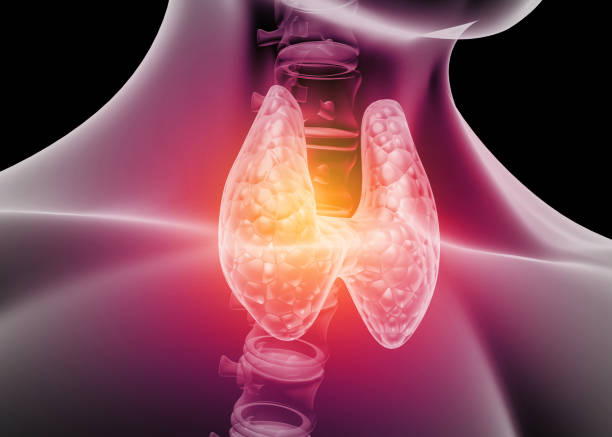
Hypothyroidism
Hypothyroidism is a common endocrine disorder characterized by an underactive thyroid gland, which results in inadequate production of thyroid hormones. When the thyroid gland fails to produce these hormones in sufficient quantities, it can lead to a wide range of symptoms and health issues.
The most common cause of hypothyroidism is autoimmune thyroiditis, also known as Hashimoto’s thyroiditis, where the body’s immune system attacks the thyroid gland, leading to inflammation and reduced hormone production. Other causes include iodine deficiency, certain medications, radiation therapy, and congenital thyroid disorders. Additionally, surgical removal of the thyroid gland or treatment for hyperthyroidism can sometimes result in hypothyroidism.
The symptoms of hypothyroidism can be subtle and may develop slowly over time, making it challenging to diagnose. Common symptoms include fatigue, weight gain, sensitivity to cold, dry skin, hair loss, constipation, muscle weakness, depression, and memory problems. As the condition progresses, more severe symptoms may appear, such as joint pain, swelling of the face and extremities, and a hoarse voice.
Diagnosis of hypothyroidism typically involves a blood test to measure the levels of thyroid-stimulating hormone (TSH) and thyroxine (T4). Elevated TSH levels, along with low T4 levels, are indicative of hypothyroidism. In some cases, additional tests, such as measuring triiodothyronine (T3) or thyroid antibodies, may be necessary to confirm the diagnosis and determine the underlying cause.
The primary treatment for hypothyroidism is thyroid hormone replacement therapy, usually in the form of levothyroxine, a synthetic version of T4. This medication helps to restore thyroid hormone levels in the body and alleviate the associated symptoms. It’s essential to work closely with a healthcare provider to find the right dosage, as the correct amount can vary from person to person. Regular follow-up appointments and blood tests are necessary to monitor hormone levels and adjust the treatment as needed.
Untreated hypothyroidism can lead to serious complications, including heart disease, infertility, and mental health issues. Pregnant women with hypothyroidism should receive special attention, as it can affect the development of the fetus and lead to complications during pregnancy.
In conclusion, hypothyroidism is a common thyroid disorder resulting from insufficient thyroid hormone production. It can lead to a wide range of symptoms and can be caused by various factors. Early diagnosis and proper management through thyroid hormone replacement therapy are essential for improving the quality of life for individuals with hypothyroidism. Regular monitoring by a healthcare provider is crucial to ensure that hormone levels are adequately controlled and that potential complications are prevented.

